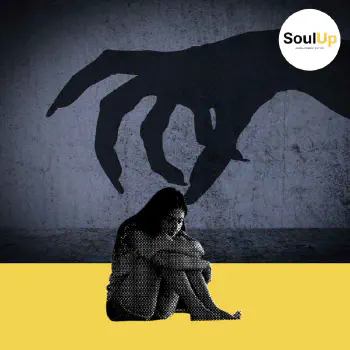Group Type: Support Group
Goals of the Group:
- To provide a supportive and community space for individuals with lived experiences of trauma
- To work towards collective healing
Who Is The Group For?
- Young adults and adults with experiences of adverse childhood experiences such as neglect, deprivation, violence, death of a caregiver, growing up with an absent caregiver(s), use of substance, ongoing stressors within the child’s environment
- Adults who have endured abuse/neglect in their childhoods
- Survivors of relational trauma that began in adulthood
- A diagnosis of Complex PTSD is not required to join
Discussion Topics:
- General anxiety
- Sleep concerns
- Intimacy
- Trust issues
- Learning to maintain relationships
What Will We Talk About?
- The pace of this support space is intended to be slow, collaborative, and gradual which will be entirely decided by the group
- Feeling and body check-in: Window of tolerance, breathwork, grounding techniques
- Expectations from the support space
- Understanding our nervous system and its unique way of responding
- Exploring different coping strategies and creative expression
- Group check-out: Breathwork and grounding techniques
Glimpse of the Session:
- The session will start with a feeling and body check-in where participants will learn about the window of tolerance, breathwork, and grounding techniques
- Expectations from the support space will be discussed and understood
- Participants will learn about their nervous system and its unique way of responding
- Coping strategies and creative expression will be explored
- The session will end with a group check-out where participants will practice breathwork and grounding techniques
Please note that the session topics, order, and other details may be subject to change based on the needs and preferences of the group members and facilitators.
Facilitator Bio:
Ummul Fatima is a licensed clinical psychologist and research scientist specializing in child and adolescent mental health. With extensive experience in psychological assessments, psychotherapy, and research, she has worked closely with young individuals navigating emotional, cognitive, and behavioral challenges. Her clinical expertise includes comprehensive assessments of cognitive, personality, and neuropsychological functioning, guiding clients toward deeper self-understanding and growth.
Currently, at AIIMS, New Delhi, Ummul is engaged in research exploring the psychosocial correlates of COVID-19 in school-going adolescents. Additionally, she is investigating grief in neurological and neurosurgical conditions, examining its impact on both patients and caregivers. Her work is driven by a deep curiosity about interplay between mental health, illness, and resilience.
Beyond clinical and research settings, Ummul is committed to mental health promotion and preventive interventions, with a particular focus on developing culturally relevant digital tools that enhance psychological and subjective well-being.
Firmly believing in the interconnectedness of language, culture, and mental health, Ummul adopts a multidimensional and contextual approach in her practice. She sees healing as a deeply personal journey-one that requires awareness, resilience, and self-exploration. As a clinician and researcher, she strives to create a collaborative space where individuals can step into their strength and navigate life’s challenges with clarity and confidence.


